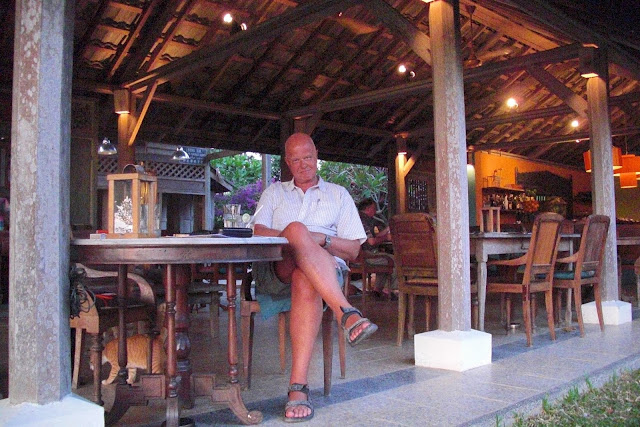Truth can, indeed, be stranger than fiction. Often it is more interesting than your everyday run-of-the-mill Monday. In the case of Bob, there are just too many incidents to remain untold. The real Bob isn’t interested in telling them unless he’s sitting with a small group of friends in a relaxed situation. But I’m going to change that. These are too good to lie dormant.
*******
In ”A Thousand and One Nights”(”Arabian Nights”) an Asian king, wishing to protect himself against his women’s faithlessness, decides that he will kill each woman who has spent the night with him. The daughter of Scheherazade, one of the king’s ministers, tells him a story each night which requires her to continue the story the next night, and the next night, until he has forgotten his original decision. The minister's’daughter saves her own life and the lives of the other women in the harem.
In suburban New Jersey in the 1950s, Bob saved his own skin in the same way.
He began attending a new school, and every day the two school bullies selected a new victim to beat up. After lunch in the cafeteria, all the students had to move out to the playground. Away from the supervised lunch room, the bullies could operate freely.A victim was chosen, and the two older boys moved in on the unfortunate student.
One day Bob realized it was his turn. Out on the playground the two bullies scanned the crowd of kids for a fresh victim. Bob felt their gaze fix on him, and he saw them approaching. He had to think fast.
Instead of cowering in the dust and accepting his fate, Bob took the initiative. He met the boys with a ”Hey, you guys, have you heard about the….?” – and began the first of a long series of stories which would entertain others. The bullies listened with interest, and when the bell rang and the teachers herded the kids back inside, Bob was not yet finished with his story.
The next day the process repeated itself, and each day Bob grew less and less afraid of the two bullies. As for them, they became more and more interested in hearing the daily continuation of the running saga Bob had begun days before. Eventually Bob made himself an object of their appreciation instead of their cruelty.
It’s the same story as the comedians who avoided trouble by making fellow classmates laugh. Or the charmers who appealed to the vanity of the bullies. The others had to take their punishment and be relieved that their ordeal, in most cases, was over after one round.
A friend of mine, while out riding his new Triumph Bonneville 650 in 1970, stopped at a scenic overlook in the hills east of San Diego, California. As he gazed out across the landscape, he heard the unmistakable distant thunder of a pack of Harley-Davidsons approaching.
It was too late to make his getaway, and, as fate would have it, the motorcycle gang pulled off the road into the parking lot. Instead of being a potential victim with an English motorcycle, surrounded by greasy Hell’s Angels, he singled out the alpha male and walked right over to him at once. Without hesitation, Andy started in with a litany of praise for the leader’s motorcycle, and for the motorcycles they drove in general. He followed up with a score of questions to demonstrate his interest and to give the wolf pack an opportunity to start talking about what they liked most in life.
Andy listened intently, ignoring his own motorcycle. The members of the motorcycle gang gathered around to follow, interspersing the conversation with comments of their own. Within a half hour Andy had almost become an honorary Hell’s Angel, and when the gang and their women roared off down the road, Andy was still in one piece – as was his Triumph.
Bob had been much younger when he achieved his own feat of diplomacy. He continued his storytelling, and at the same time began a life which lent itself to stories. Bob has lived on three continents and traveled extensively on many more. He is not a missionary, nor is he a hero, an explorer, a mercenary, or a spy. He merely has wanderlust, and is not afraid to explore places and situations which others would perhaps shy away from.
This, then, is the story of an extraordinary story-teller with a bag full of stories to tell.
Air Male
The scarf around the neck, the goggles, the open cockpit and the biplane. This is the image we have of a World War One aviator, or perhaps a circus aviator, a cropduster, a Lindbergh or an Earhart. But no, this deals with Bob’s stint in the United States Peace Corps while in the West African country of Liberia.
Liberia got its name from African slaves in America who had received their freedom and had formed a nation of their own in Africa. The capital, Monrovia, was named after the American President, James Monroe. Over a century later, the USA was sending in Peace Corps volunteers to shore up the faltering infrastructure.
Bob was one of the them. The year was 19.. and the climate was hot and humid. Kind of like summer in New Jersey, but without the air conditioning. There was a beach, not unlike home in New Jersey. But that’s where the similarity ended. This was real Third World they were dealing with.
Incoming?
The new main post office in Monrovia was a joke. It had been constructed to service the large number of customers. The twenty service windows would cut down on the long lines, and help provide efficient service. That was the theory.
In reality, seventeen of the windows were unmanned, while the remaining three windows serviced lines that were just as long as before. Nothing changes, and that which changes does not always change for the better – in spite of appearances.
Take the case of the aviator with the goggles, sitting in the open cockpit of his biplane. He was the pilot of the sole airmail craft in Liberia. Oh, he was a hero to the populace. Wherever people lived, no matter how far from the capital, no matter how isolated, as long as there was a large-enough clearing or soccer field, he could put that little plane down there and deliver the mail to the waiting throngs. And with luck, he could take off again and fly to the next village or town.
The plane was one of two which had been left behind by the Americans after the end of World War Two. It had been used to spot enemy submarines off the coast, and as parts ran out, one of the two craft was cannibalized for parts so that the other might survive.
The fuselage consisted of a fabric skin stretched over a framework body. The skin consisted of numerous patched remnants of different types of fabric, and when a hole appeared, all that was necessary to repair it was a new patch of material, a needle, and a length of thread.
Whenever it approached a village, the inhabitants could hear it coming. The single engine produced a drone that was instantly recognizable, even to the children. All the villagers ran to the landing field and gazed up into the sky to spot the bumble bee of an aircraft which slowly began its approach, coasting and tilting its double wings, and always seemingly barely making a successful landing.
The crowd was always full of excitement, for with the arrival of the mail came the arrival of fresh hope or renewed acquaintance, good news or bad, or the news of a government appointment in the faraway capital. Love and grief and excitement arrived with the mail, and the aviator was indeed a popular man.
Like a sailor, he had a woman in every ”port.” And because of the unpredictability of his aircraft, he was often delayed by ”engine trouble” and forced to spend the night and the next day in whatever village he happened to have female admirers. As long as the mail arrived, the arrival date was not so important. When it happened, it happened. When the bus came, it came, and there was not schedule posted by the roadside. Twenty or more people might create their own microsociety while waiting for two or four hours for a bus that might or might not arrive. And so it was with the aviator. Yes, life was good.
A Gift to the Postal System
The Cessna Aircraft Company in Wichita, Kansas, USA learned of this situation and generously donated a new aircraft to Liberia to replace the present wartime biplane. It arrived in crates, along with two mechanics who accompanied the unassembled monoplane.
Within a short time the new aircraft was assembled and running, and the aviator was put through a training course. He readily mastered the skills required, and was soon off on his duties again – this time in a snazzy, efficient new aircraft.
But alas, this improvement spelled the end to the good life for our aviator. From that moment he was a slave to the schedule of the Postal System. There was no longer any need to spend the night and the day drinking, carousing, and relaxing. Now the airplane was instantly ready to fly on to the next village, and the next village, and the next. There was no time to sit and talk or even to relax. The schedule had to be enforced.
The mail was now more regular. And the aviator tensed his jaws and fixed his gaze on the horizon, speeding away across the expanse of green below, on his way to the next village.
The Three Wife Club
As told to Mark Mattison








Four big lovely smiles in the 3 Wives photo. The two biggest smiles are on the ones who no longer have to have sex with you. Coincidence?
ReplyDelete